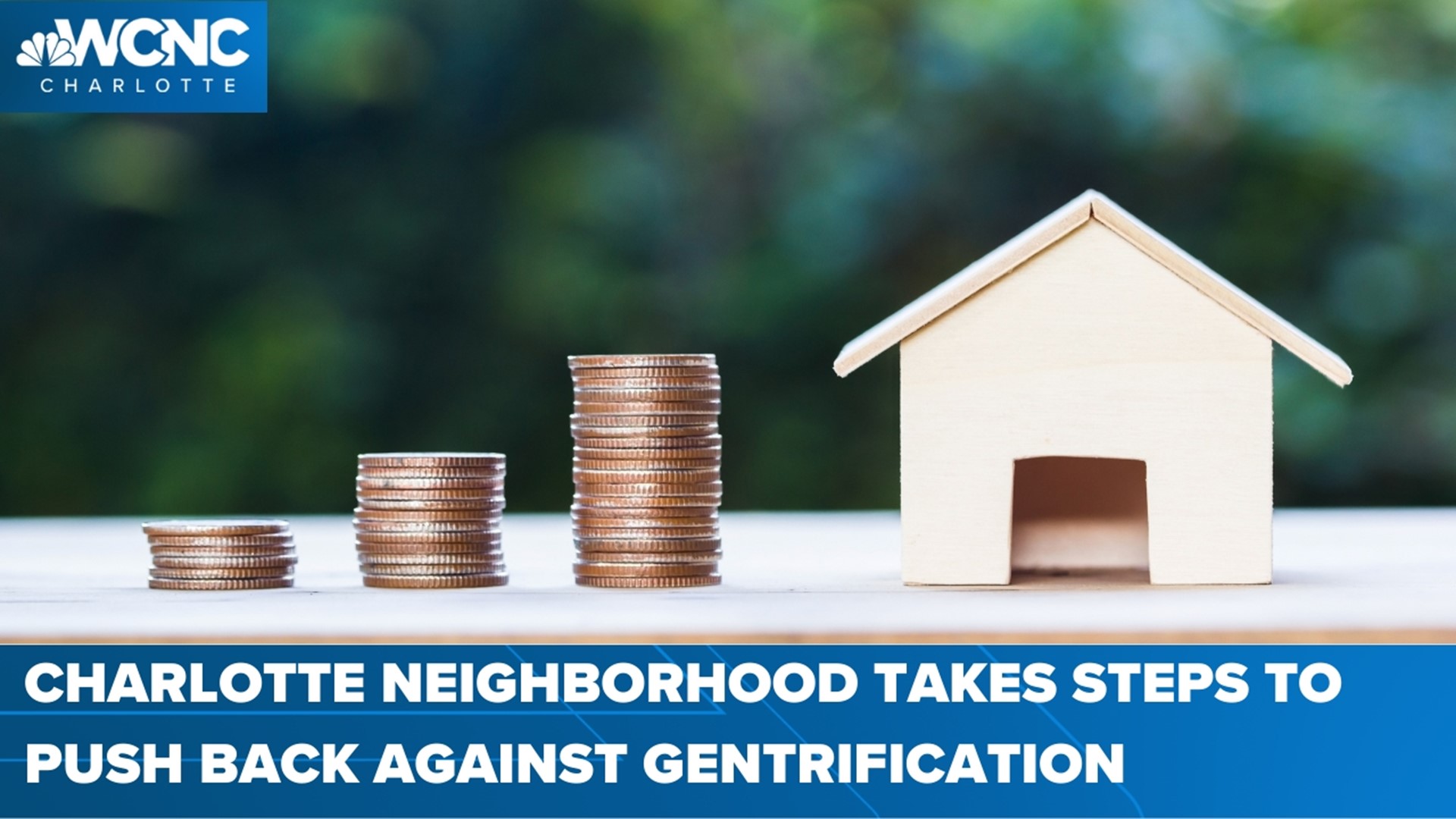CHARLOTTE, N.C. — If approved, the city of Charlotte could soon have its 8th historic district.
McCrorey Heights is a historically Black neighborhood located just north of Johnson C. Smith University. People there are pushing to protect their homes from new construction and development that they say goes against the character of the neighborhood.
You can find rezoning petition notices throughout McCrorey Heights as residents fight to protect the traditions, legacy, and history of their neighborhood.
“It’s just a beautiful neighborhood. I like the ranch-style homes here," George Moreland, who's lived in McCrorey Heights for nearly 50 years, said. "Everybody knew everybody and they were excellent role models."
Red brick homes fill the streets in the community founded by Dr. HL McCrorey, a prominent African-American man who served as the fifth and longest-serving president of JCSU from 1907 to 1947.
“One of the things he wanted to do is create his own African-American community built around the university, maybe for the professors to live and it attracted the Black middle class,” said Brandon Lunsford, library archivist for the university.
“I’m a Johnson C. Smith University graduate. Just imagine going to college and the president of your university lives just two houses down from you,” Moreland said. “Just imagine that.”
The neighborhood is home to prominent Black professionals, civil rights activists, and church leaders.
“These were Black doctors, Black dentists, lawyers, lots of school principals, several teachers, and ministers," Lunsford said. "These were self-made people."
Neighbors say McCrorey Heights is the definition of "it takes a village," where Moreland said everybody looked out for one another.
“We grew up in a time where it was not any big deal for the kids to cut through the yard. You could see a neighbor that would speak to you and say 'how are you doing,'” Moreland said. “If you did something inappropriate they would not have a problem telling you that is not the way.”
Dozens of residents have petitioned to designate the neighborhood as a historic district to protect its architectural style from gentrification and increased development.
“As investors would come, they would take a ranch-style house in the neighborhood and tear it down,” Moreland said, “then would come back with some very contemporary looking something that is just completely out of character for the neighborhood.”
If the historic designation is approved, property owners would need to get permission from the city’s historic district commission for any changes to the exteriors of a home, for new construction, or to tear a home down.
It’s a rezoning initiative Charlotte City Council Member Malcolm Graham said he can get behind.
“We understand the impact of gentrification,” Graham said. “This type of designation, while it is not full protection, it does protect the housing stock in the area to make sure that everything stays the same and consistent dating back to when the first house was built.”
The end goal: To protect a legacy Moreland hopes to be cherished by future generations.
“It’s important that we hold on to these houses so the wealth can be passed down to our children and families,” said Moreland.”
The city council is expected to make its final decision on Aug. 15.
Contact Jesse Pierre at jpierrepet@wcnc.com or follow her on Facebook, Twitter and Instagram.

